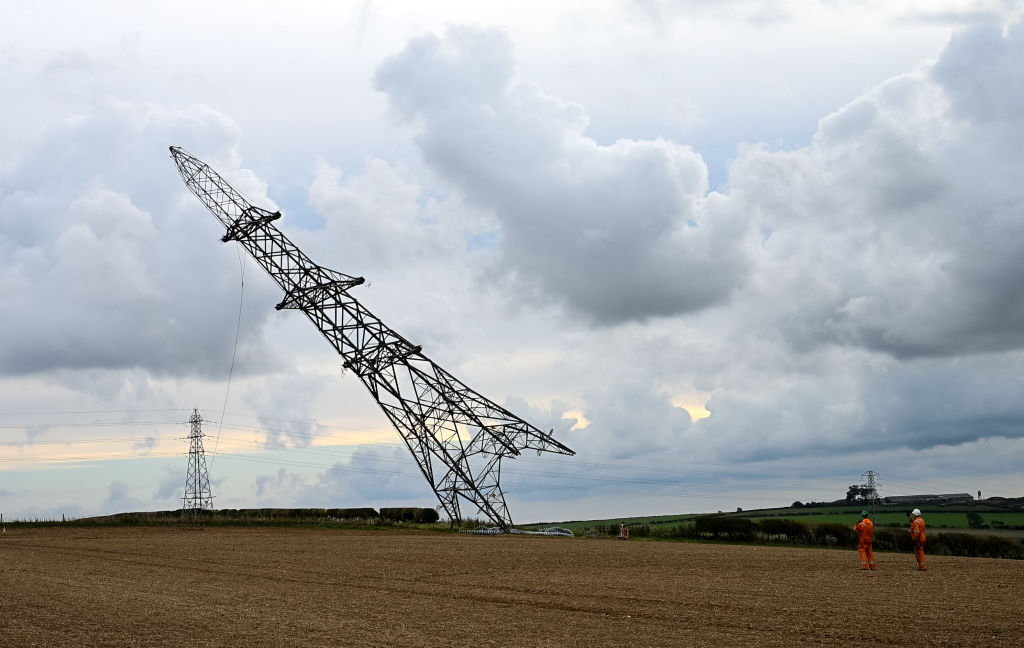So, we have a little more flesh on the bones of Labour’s energy policy, with the party giving more details of Great British Energy, the state-owned company it wants to set up to invest in wind and solar energy. But there are still gaping holes in Labour’s promise to decarbonise the electricity grid by 2030 – and save consumers money in the process.
First to note is that Labour seems drastically to have toned down the claims as to how much its energy policies will supposedly save consumers. Until today it was claiming that it would save us ‘up to £1,400’ a year. Given that under Ofgem’s price cap the average household is currently paying £1,690 a year on a dual gas and electricity bill, and that this is due to fall to £1,568 in July, this did seem a little unlikely – it was based on the very high energy prices of the winter 2022/23. Labour’s new claim is that it will save us £300 a year. But it also claims: ‘Labour pledges that Great British Energy will cut energy bills for good, as families face threat of £900 annual energy price spikes under the Tories.’
Annual energy price spikes of £900 under the Tories? Where did that come from? It seems to be based on a claim that ‘a dual-fuel household with typical levels of consumption on the direct debit price cap/Energy Price Guarantee would have paid £1,880 more between April 2022 and March 2024 than if prices and standing charges had remained at their April 2021 to March 2022 levels’. In other words, Labour is asserting that had it been in power, energy prices would not have risen one bean in 2022 and 2023. This seems somewhat improbable – unless David Lammy – Labour’s putative foreign secretary could have managed to charm Vladimir Putin into not invading Ukraine.
The Ukrainian invasion led to a spike in gas and oil prices all across Europe but the crisis – combined with the inflationary effects of the pandemic – also led to a sharp increase in the cost of new wind and solar. As an example, in July 2022 the Swedish company Vattenfall won one of the government’s auctions to build an offshore wind farm, Norfolk Boreas, in return for a strike price (a price guaranteed for 15 years, rising with inflation) equivalent to £45 per megawatt-hour at the time. A year later it withdrew from the project, complaining that the cost of building a wind farm had greatly increased in the interim and it would no longer be profitable. Not only had steel and cement prices increased greatly, so too had interest rates. When most of the costs in constructing power plant come upfront – as they do with wind and solar – the level of interest rates makes a huge difference to profitability. A further government auction for offshore wind last September attracted no bids.
How will Great British Energy get around the rising costs of building wind and solar? Labour provides no answer to this, but it does say that Great British Energy will have an initial capitalisation of £8.3 billion, funded by a ‘proper’ windfall tax on gas and oil companies. Given that Vattenfall had been proposing to spend £10 billion building just three offshore windfarms (before costs surged) it is hard to see how this is going to fund a complete transformation of the energy sector, as Labour is promising. Besides the cost of building wind and solar farms themselves, there is also the considerable cost of reconfiguring the grid to allow the power generated by new wind and solar farms to actually to be used – at present developers are complaining they have been told it could take up to 15 years to connect their projects to the grid.
On top of that is the even bigger cost of providing some sort of back-up to provide energy when wind and solar energy are very low. How is Labour planning to do this? It still can’t seem to tell us, although it is interesting to note that today’s press release on Great British Energy doesn’t mention energy storage but it does mention CCS – i.e. Carbon Capture and Storage, a technology that can be used to remove carbon dioxide from the exhaust streams of coal and gas-fired power stations, albeit at a price. If Labour is planning to use gas plants fitted with CCS as back-up, it certainly isn’t going to be saving consumers much money. Moreover, the continued use of gas would make a nonsense of Labour’s pledge to save us from ‘fossil fuel markets controlled by dictators and rogue states’.
Indeed, Labour’s energy policy would make us more dependent on fossil fuels from rogue states because it involves granting no new licences for oil and gas extraction in the North Sea. If we are going to continue to use gas, but we are not going to get it from our own territory, then clearly we are going to have to import it. Labour’s energy policy never did add up. The latest release of detail on Great British Energy does nothing to change that.








Comments